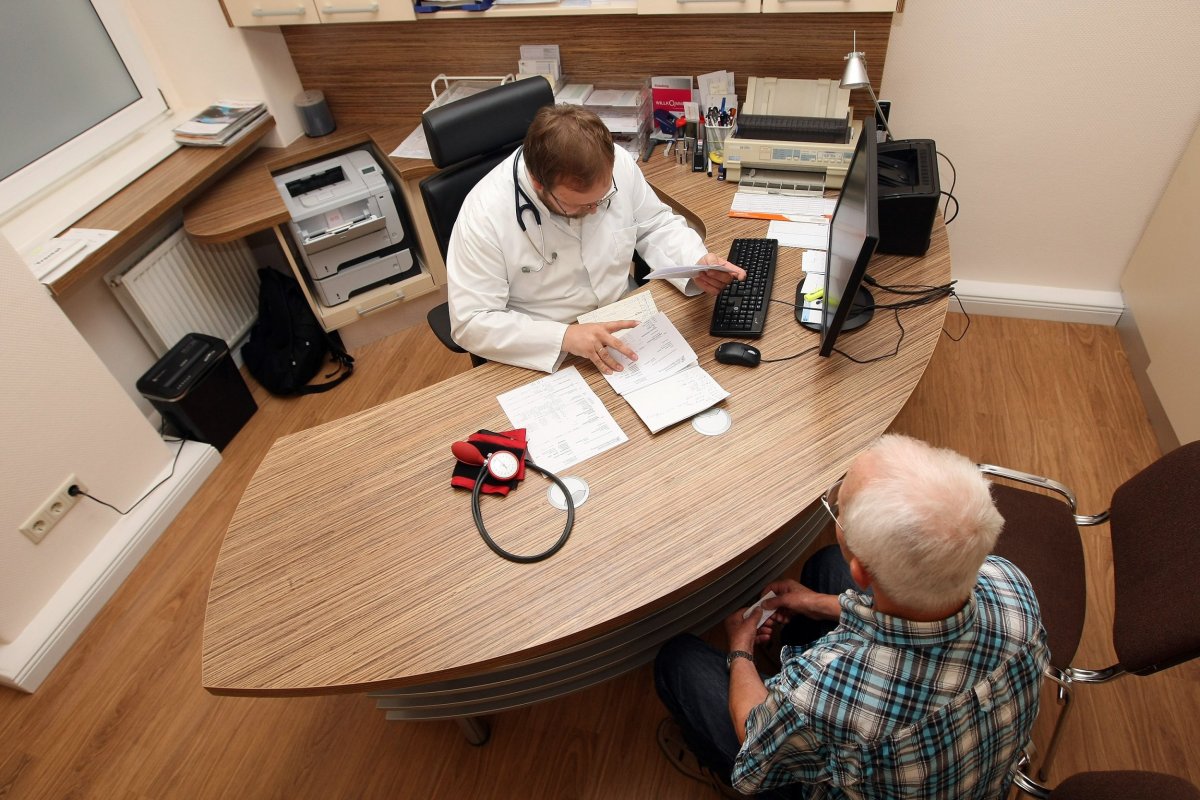
The American Heart Association and the American College of Cardiology released new guidelines for diagnosing high blood pressure on November 13. The guidelines lowered the threshold for treating blood pressure—which means 30 million more Americans now have high blood pressure.
People with a pressure reading of 130/80 will now be diagnosed with high blood pressure, a reduction from the prior standard of 140/90. The guideline changes followed a major study published in the New England Journal of Medicine in 2015.
For anyone who needs a refresher on what that giant Velcro armband at the doctor's office does: The two numbers measure how high the blood's literal pressure can force a column of mercury to rise. The top number (systolic blood pressure) is taken as the heart beats. The bottom number (diastolic blood pressure) is taken between beats. A person's blood pressure constantly fluctuates between the two.
Worried you may be one of the 30 million Americans who had high blood pressure last week? If so, here are a few suggestions that might help bring those numbers down.

1. Lose weight
Sorry, it's true. "The lower your body mass index, the less your heart has to work to pump blood through the blood vessels that go through your entire body. It's essentially less work on your heart," Cheryl Himmelfarb, a professor at Johns Hopkins University and one of the authors of the new guidelines, told Newsweek. The more fat tissue you have, the more veins you have, so it becomes more work for your heart. Being overweight is one of the main risk factors for high blood pressure. Even if this isn't the one thing you set your mind to do, many of the other tips below are likely to result in weight loss if they're applied correctly.
2. Change your diet
Told you. The DASH diet, one of the few evidence-based diets out there, does work. ("DASH" stands for "Dietary Approaches to Stop Hypertension.") The diet, which is centered around fruits, vegetables, whole grains and low-fat meat and dairy products, has been around for more than 20 years. Results demonstrating its effectiveness have been published in the New England Journal of Medicine, among other places. And yet it hasn't quite caught on, The Washington Post reported.
Even if you don't have high blood pressure, adding more fruits and vegetables to your diet is not a bad idea. A recent CDC study found that 90 percent of Americans were eating less than the recommended daily amount of fruits and vegetables.
3. Exercise
Challenging movements can make the muscles in your heart stronger, which means it won't need to work quite as hard to push the blood around your body. "It strengthens your blood vessels, it actually makes your blood vessels more reactive—so reactive—to changes in blood volume, changes in heart rate. It physically conditions your heart and your blood vessels. And you're losing weight sometimes," said Himmelfarb, adding, "Physical activity without weight loss can decrease blood pressure," possibly because of its impact on stress levels.
4. Quit smoking or cut back on drinking
"Smoking can have an immediate effect on blood pressure," Himmelfarb said, because it makes the vessels smaller. "We're still learning more about longer-term effects of smoking on blood pressure." The link between alcohol and high blood pressure, on the other hand, is pretty well established. The American Heart Association recommends no more than one drink a day for women, and two drinks a day for men—and "real"-sized ones: a 12-ounce beer or a 4-ounce glass of wine, not the supersized beverages to which many Americans have become accustomed.
5. Take medication
Some may suspect these guidelines were designed to make pharmaceutical companies even more money. Some pharmaceutical companies have given to the American Heart Association in the past; AstraZeneca was a major contributor to the American Heart Association in 2015, according to the organization's federal tax filings. "The AHA have rigorous policies and guidelines to ensure and solely on the scientific evidence. The relationships with industry were reviewed for every member of the writing group," said Himmelfarb. "And all the writing group members were free of any conflict, of any relationship, with the industry."
Generic versions of any of the medications that would be recommended are available. But the guidelines are not expected to impact prescriptions all that much. According to an analysis of the ACC/AHA guidelines also published in November, almost the same proportion of U.S. adults—36 percent—are expected to take blood pressure medication under the new guidelines; under the previous guidelines, 34 percent did. Most adults with high blood pressure will be expected to take medication; only 9.4 percent of U.S. adults are expected to be able to treat their high blood pressure just by working on their lifestyle with their doctor's advice. However, that 9.4 percent accounts for the vast majority of those expected to be newly diagnosed with the condition after November's changes.
Uncommon Knowledge
Newsweek is committed to challenging conventional wisdom and finding connections in the search for common ground.
Newsweek is committed to challenging conventional wisdom and finding connections in the search for common ground.
About the writer
Kate Sheridan is a science writer. She's previously written for STAT, Hakai Magazine, the Montreal Gazette, and other digital and ... Read more
To read how Newsweek uses AI as a newsroom tool, Click here.








